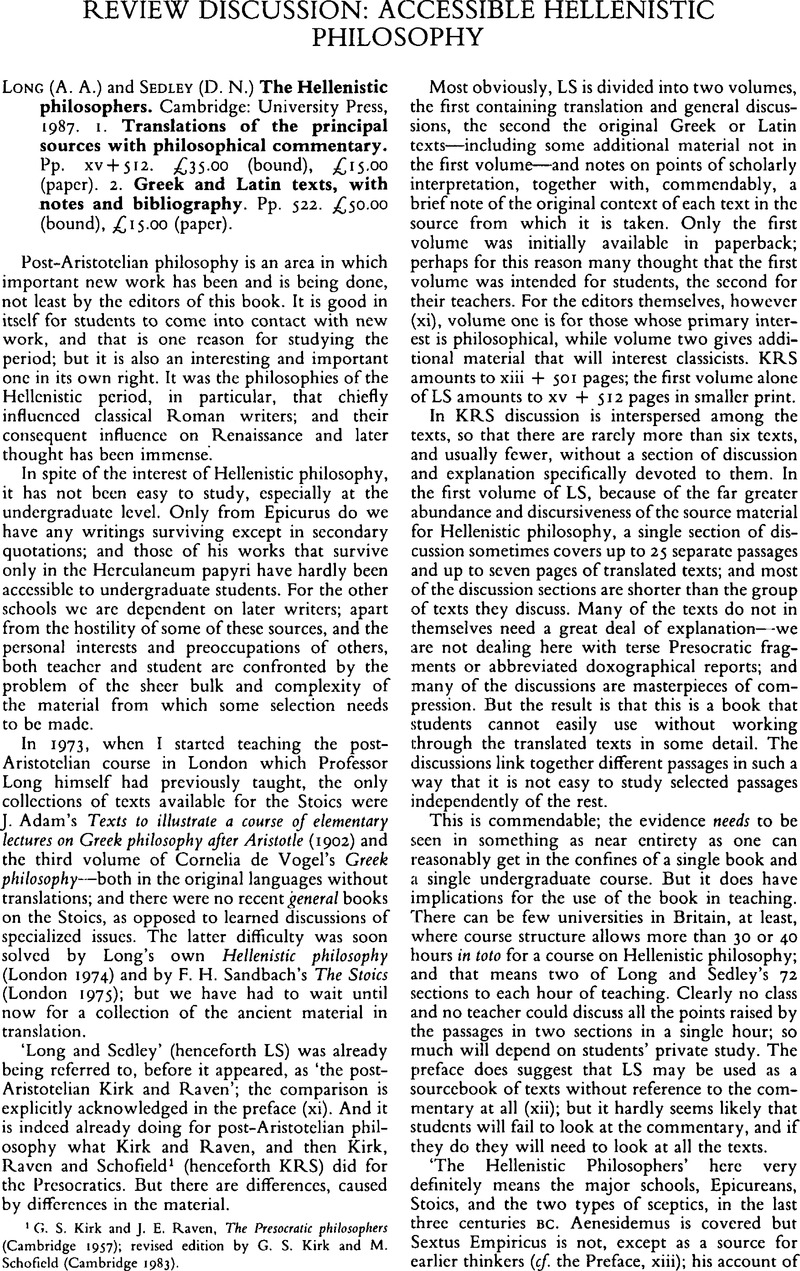No CrossRef data available.
Published online by Cambridge University Press: 11 October 2013

1 Kirk, G. S. and Raven, J. E., The Presocralic philosophers (Cambridge 1957)Google Scholar; revised edition by G. S. Kirk and M. Schofield (Cambridge 1983).
2 Tarrant, H., Scepticism or Platonism? The philosophy of the Fourth Academy, Cambridge 1985Google Scholar; cf. my review at Philosophical review xcvi (1987) 601–603.
3 Long, A. A., ‘Chance and natural law in Epicureanism’, Phronesis xxii (1977) 63–88CrossRefGoogle Scholar, at 81 ff.
4 In Barnes, J. and Mignucci, M. (eds.), Matter and metaphysics (Naples 1988) 297–327Google Scholar, at 300.
5 Cf. Repici, L., La natura e l'anima: saggi su Stratone di Lampsaco (Torino 1988)Google Scholar ch. 5.
6 Proclus, In Timaeum vol. 2 122. 10–17 Diehl.
7 For the former point see A. A. Long, Hellenistic philosophy, 197–8; for the latter id., ‘Freedom and determinism in the Stoic theory of human action’, in his (ed.), Problems in Stoicism (London 1971) 173–199, at 189–92. Cf. SVF 3. 355–364, 544. It is true, as Long there says, that this is a doctrine particularly emphasised by Epictetus, but it is a direct development of earlier Stoic ideas (cf. Sharples, R. W., ‘Soft determinism and freedom in early Stoicism’, Phronesis xxxi [1986] 266–279, at 277–9CrossRefGoogle Scholar).
8 Inwood, Brad, Ethics and human action in early Stoicism (Oxford 1985), at 119–26.Google Scholar
9 Hintikka, J., ‘Aristotle and the Master Argument of Diodorus’, American philosophical quarterly i (1964) 101–14Google Scholar, revised as ch. 9 of his Time and necessity (Oxford 1973).
10 F. H. Sandbach, ‘Phantasia kataleptike’, in Long, Problems (above n. 9) at 14–15.
11 A. A. Long, Hellenistic philosophy, 103–4.
12 Rist, J. M., Stoic philosophy (Cambridge 1969) 8Google Scholar and n. 2, 9 and n. 1, Another passage containing the term chreia discussed by Rist appears here as passage 640, in volume 2 only, but with no mention of this point.
13 Cf. Sambursky, S., Physics of the Stoics (London 1971), 56Google Scholar and n. 24.
14 Kerferd, G. B. in CR ix (1959) 119.Google Scholar